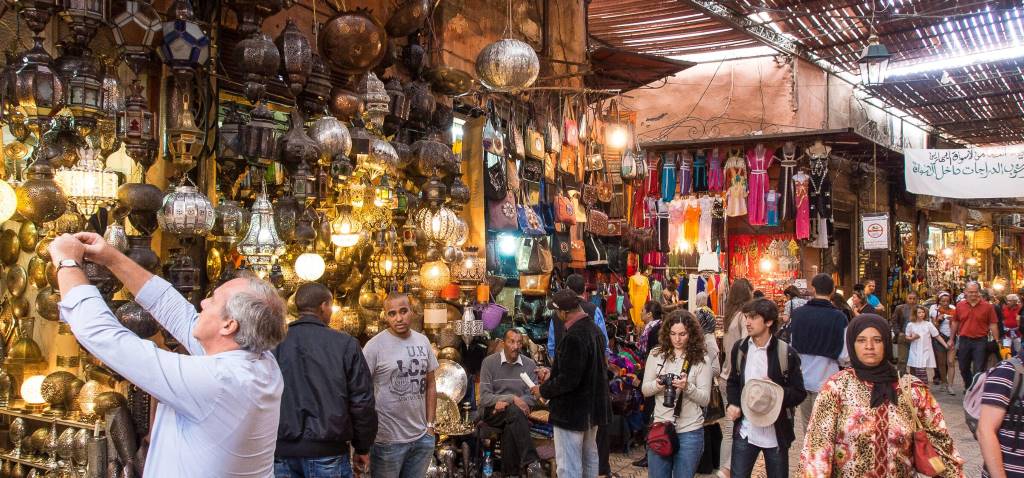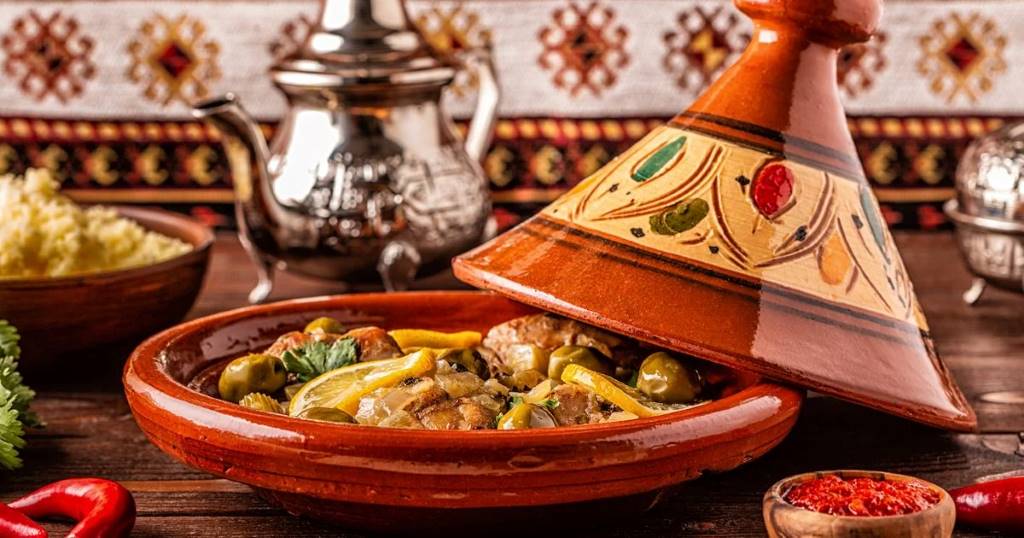
Traveling to Morocco is a feast for the senses. The vibrant markets of Jemaa el-Fna, the aroma of harira soup, and the allure of Moroccan cuisine draw millions yearly. But food safety can be tricky. One wrong bite can lead to food poisoning, ruining your trip. According to the CDC Traveler’s Health, 20–50% of travelers face foodborne illnesses in developing countries. Morocco’s street food and unique dishes require caution. This guide covers what not to eat in Morocco, offering practical tips to keep you safe while enjoying its culinary wonders. Let’s dive into safe dining in this North African gem.
Why Food Safety Matters in Morocco
Morocco’s food scene is a lively mix of flavors. From kefta skewers to fruit salads, the cuisine is rich. But hygiene standards vary. The Ministry of Health reports over 1,000 food poisoning cases annually, often tied to improper food handling. Street food vendors in places like Djem al Fna may not follow strict sanitation. Contaminated water, like tap water, also poses risks. Understanding these challenges helps you make smart choices. You’ll enjoy Moroccan culture without the risk of illness. Let’s explore the foods and practices to avoid for a healthy trip.
Foods to Avoid in Morocco
Not all Moroccan dishes are risky, but some require caution. Here’s a list of foods to steer clear of to avoid health issues.
1. Unfiltered Tap Water and Related Products
Tap water in Morocco isn’t always safe. The CDC warns that unfiltered water may carry bacteria like E. coli or Hepatitis A. Avoid drinking tap water or using it to brush your teeth.
- Skip ice cubes in drinks, as they’re often made from tap water.
- Avoid bottled water from unreliable sources; check seals.
- Steer clear of fruit salads washed in tap water at street stalls.
- Choose bottled water from reputable brands for safety.
Stick to sealed bottled water or boil water when possible. Hydration tubes or personal filters are great for travelers.
2. Raw or Undercooked Meat and Fish
Moroccan dishes like kefta skewers or fried fish are delicious but risky if undercooked. The Anti-Poison and Pharmacovigilance Center of Morocco notes that raw meat can harbor bacteria like Salmonella.
- Avoid rare ground beef in kefta or tagines.
- Skip fried fish from vendors with poor hygiene.
- Check cooking temperatures at restaurants; ensure meat is fully cooked.
- Opt for well-cooked dishes like slow-cooked tagines.
Visit trusted spots like Cafe Clock or Dar Moha for safer meat dishes.
3. Street Food from Unhygienic Vendors
Street food vendors in Spice Square or Jemaa el-Fna are tempting. But poor hygiene can lead to food poisoning. The World Health Organization links 70% of traveler’s diarrhea to street food.
- Avoid vendors with dirty utensils or uncovered food.
- Skip raw garnishes like herbs or salads on street food.
- Choose busy stalls with fresh, hot food to reduce risks.
- Watch preparation to ensure cleanliness.
Try established spots like Earth Café for safe street-style food.
4. Unpasteurized Dairy Products
Dairy in Morocco, like local cheeses, may be unpasteurized. This increases the risk of bacterial infections, per the Ministry of Health.
- Avoid soft cheeses from markets unless labeled pasteurized.
- Skip milk-based drinks from small vendors.
- Check packaging for pasteurization details.
- Choose packaged dairy from trusted stores.
Opt for vegan diet options or bring peanut butter packets for safe protein.
5. Pre-Cut or Exposed Fruit and Vegetables
Fruit salads or pre-cut veggies in markets look fresh but are often washed in tap water. This can lead to contamination.
- Avoid pre-cut fruit from street vendors.
- Skip salads unless you confirm they’re washed with bottled water.
- Peel your own fruit like oranges or bananas.
- Buy whole produce and wash it with bottled water.
Visit trusted restaurants like Riad Dar Dmana for safe salads.
Cultural Dining Tips to Stay Safe
Moroccan culture values hospitality, but some dining practices require caution. Understanding local customs helps you eat safely.
- Avoid public displays of affection while dining; it’s a cultural taboo.
- Ask tour guides about safe eateries for authentic experiences.
- Learn basic Moroccan Arabic phrases to inquire about food prep.
- Respect Eid al-Fitr fasting rules; avoid eating in public during Ramadan.
These tips ensure you enjoy Morocco’s food scene respectfully and safely.
Read Also:
- Visit Atlanta Safari Park: Your Ultimate Guide to a Wild Adventure
- One Day in Bryce Canyon National Park: A Hoodoo-Filled Adventure
- One Day Guide to North Rim Grand Canyon National Park
Special Diets: Gluten-Free and Vegan Challenges
Travelers with dietary needs face extra hurdles. Gluten-free or vegan diets require careful planning in Morocco.
Gluten-Free Dining
The Gluten-free options are limited. Harira soup may contain wheat-based ingredients.
- Ask about ingredients in soups and tagines.
- Avoid bread served with meals unless confirmed gluten-free.
- Bring protein bars for safe snacks.
- Check with cafes like Café Des Epices for gluten-free dishes.
Vegan Dining
Moroccan cuisine leans heavily on meat and dairy. Vegan options exist but need verification.
- Confirm vegan status of dishes like vegetable tagines.
- Avoid hidden animal products in sauces or broths.
- Visit vegan-friendly spots like Earth Café.
- Pack vegan snacks like dark chocolate or peanut butter packets.
Plan ahead to meet your dietary needs safely.
Health Precautions for Moroccan Travel
Food safety goes beyond avoiding certain dishes. Protect yourself with these health tips.
- Get vaccinated: Hepatitis A and Typhoid vaccines are recommended by the CDC.
- Carry a first-aid kit: Include anti-diarrhea meds and rehydration salts.
- Use natural pharmacies: Moroccan herbal medicines can help with minor issues.
- Stay hydrated: Bring hydration tubes or sealed bottled water.
- Pack cellophane bags: Store snacks securely to avoid contamination.
Consult a travel nurse or check NHS Fit to Travel for more advice.
Safe Dining Recommendations in Morocco
Morocco has many safe, delicious dining options. Here are top picks for worry-free meals.
- Cafe Clock: Known for clean, authentic dishes like harira soup.
- Dar Moha: Offers upscale Moroccan cuisine with high hygiene standards.
- Earth Café: Specializes in vegan and gluten-free options.
- Café Des Epices: Popular for fresh, well-prepared street-style food.
- Riad Dar Dmana: Serves safe, traditional meals in a cozy setting.
These spots ensure you enjoy Moroccan food without risks.
Interesting Fact: The Argan Oil Advantage
Argan oil, a Moroccan staple, is a safe and healthy cooking ingredient. Produced in Morocco’s Saharian dunes, it’s rich in antioxidants. Unlike some street foods, certified argan oil from trusted sources like natural pharmacies is safe. It’s used in dishes at places like Amal Women’s Training Centre. Incorporating argan oil into your meals adds flavor and nutrition without the risks of contaminated foods. Look for sealed bottles to ensure purity.
Conclusion
Morocco’s culinary scene is a highlight of any trip. But food safety is key. Avoid tap water, undercooked meats, unhygienic street food, unpasteurized dairy, and pre-cut produce. Stick to trusted restaurants like Cafe Clock or Dar Moha. Get vaccinated, carry a first-aid kit, and respect cultural norms. With these tips, you’ll savor Morocco’s flavors safely. Plan your trip today—check CDC Traveler’s Health for more advice and book a table at a safe eatery to experience Moroccan cuisine worry-free!
FAQs
What vaccines do I need for food safety in Morocco?
Get Hepatitis A and Typhoid vaccines. The CDC recommends them for travelers to Morocco to prevent foodborne illnesses.
Is street food in Morocco safe?
Some street food is risky due to poor hygiene. Choose busy vendors with fresh, hot food to reduce risks.
Can I drink tap water in Morocco?
No, tap water may carry bacteria. Stick to sealed bottled water or boil water for safety.
Are there vegan options in Morocco?
Yes, but confirm dishes are vegan. Visit Earth Café or pack snacks like peanut butter packets.
How do I find gluten-free food in Morocco?
Ask about ingredients and avoid wheat-based dishes. Bring gluten-free protein bars for safe snacking.
References
- CDC Traveler’s Health: https://wwwnc.cdc.gov/travel
- Ministry of Health, Morocco: http://www.sante.gov.ma
- Anti-Poison and Pharmacovigilance Center of Morocco: http://www.capm.ma
- World Health Organization Food Safety: https://www.who.int/foodsafety
- NHS Fit to Travel: https://www.nhs.uk/conditions/travel-vaccinations







